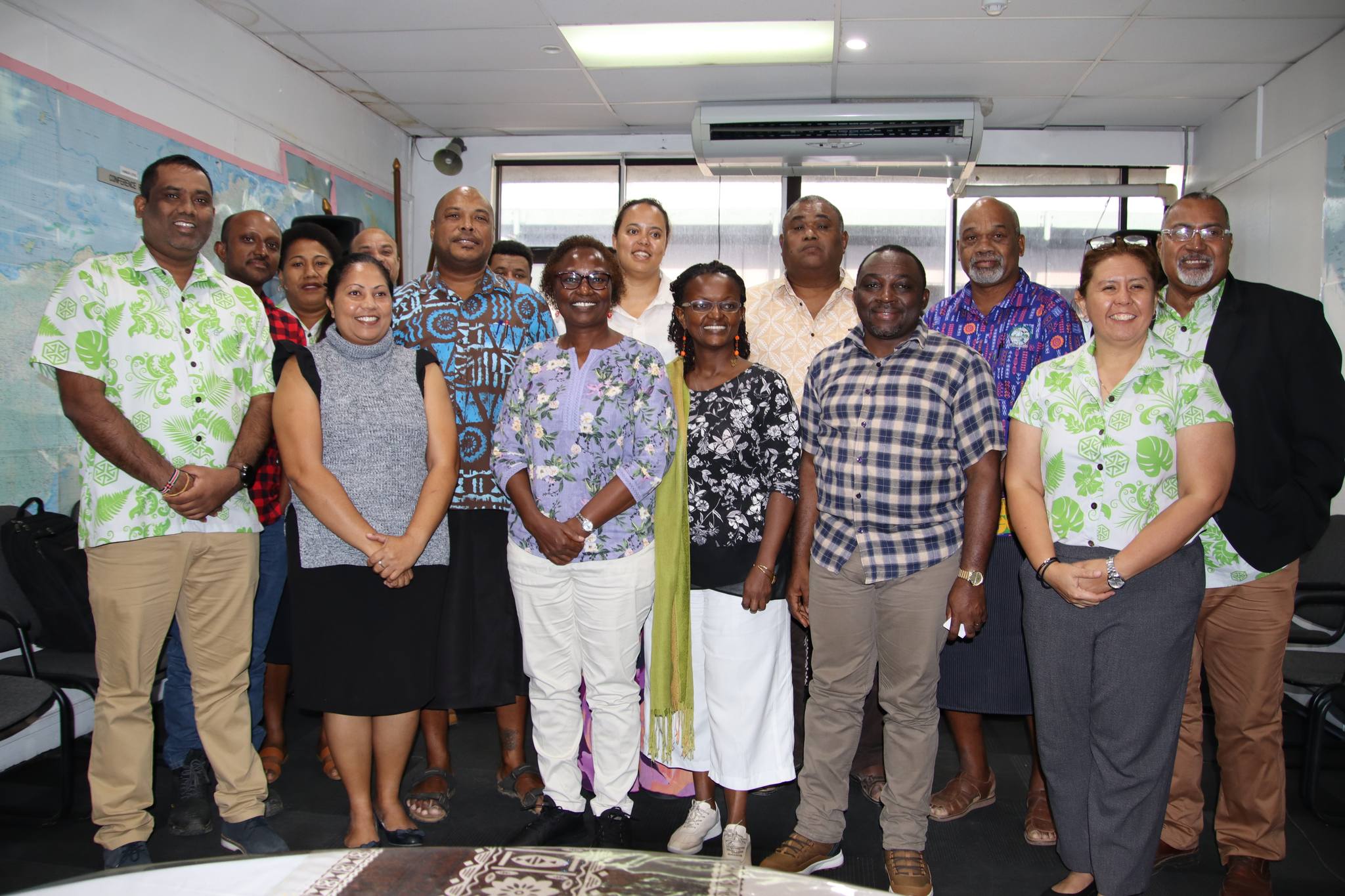DELEGATION VISIT FIJI TO ASSESS POTENTIAL FOR INSECT BASED LIVESTOCK FEED PRODUCTION
June 28, 2024

A reciprocal knowledge exchange visit from Africa and the International Centre of Insect Physiology and Ecology (icipe) are in Fiji this week.
The visit in collaboration with the Agricultural Research and Technical Centre for the Pacific based here in Suva, is to explore the potential use of Black Soldier Fly (BSF) as an alternative addition to traditional livestock feed.
The Black Soldier Fly is a non-pest insect known for its impressive ability to convert organic waste into valuable commercial products. It deposits its eggs in decaying matter, where the larvae, the true stars of the process, convert the waste materials into two valuable resources for the agriculture sector: protein-rich larvae biomass and nutrient-rich residue, also known as ‘frass.’
These nutrient rich products are harvested and used as feed for livestock or fish or can be processed into biofuels. Additionally, the larvae themselves serve as a protein-rich food source, offering a sustainable alternative to traditional livestock feed.
Deputy Secretary for Agriculture Development for the Ministry of Agriculture and Waterways, Dr. Tekini Nakidakida says the high cost of feed, low quality, and feeding knowledge gaps are some of the core reasons for low animal performance and low on farm productivity for farms in Fiji.
“The visit by the team is very much welcomed and we look forward to the findings that they will gather from their field visits in the Central and Western Division,” added Dr. Nakidakida.
Earlier this year, three staff from the Ministry of Agriculture and Waterways, namely Ronil Prasad- Senior Research Officer (Livestock), Mereani Nai-Agricultural Officer (Livestock Feed Technologies) and Apenisa Sailo- Principal Research Officer (Plant Protection), visited Kenya for the ACIAR sponsored international knowledge exchange visit where they assessed the potential for insect-based livestock feed production in the Pacific.
Mr. Prasad said he is grateful that the general delivery of the program by ACIAR and International Centre of Insect Physiology and Ecology (ICIPE) will lead to setting up guidelines or concepts of using insects as a potential feed sources in the Pacific.
“The knowledge exchange visit to Kenya enabled us to meet many experts around Africa and Pacific regions thus networking with experts have enabled greater extent of knowledge exchange which could be further utilised in Fiji in terms of insect based feed adoption plans for improvement of the livestock sector as a whole,” explained Mr. Prasad.
The visiting delegation visited farms in Fiji as well as waste management facilities in the Central Division to get an overview of the local waste management including meetings with government partners and stakeholders to present the BSF technology.
ACIAR Regional Manager,
Pacific, Mai Alagcan says the knowledge exchange will pave the way for further
collaborations and assist in the co-development of an action plan on insect-based
feeding, which will be submitted for consideration and support to ICIPE and
ACIAR.
Apart from Fiji, another group is being hosted by the Vanuatu Agricultural Research and Technical Centre (VARTC) to explore a similar BSF feasibility study before they will continue to Papua New Guinea.
Upon completion of the visit, it is the hope that ACIAR and ICIPE will support the BSF work in the region via an approved ACIAR Collaborative research project.
ENDS
